U.S. Raises Import Tariffs on Afghan Goods, Putting Pressure on Afghan Exporters

Afghanistan’s economy, heavily reliant on agricultural exports such as dried fruits, nuts, and medicinal herbs, is expected to feel the brunt of the change. Many Afghan producers already struggle with limited access to international markets due to infrastructure challenges and trade restrictions.
$۱۰ Billion Power Generation Deal Signed Between Azizi Group and Taliban’s Ministry of Energy and Water
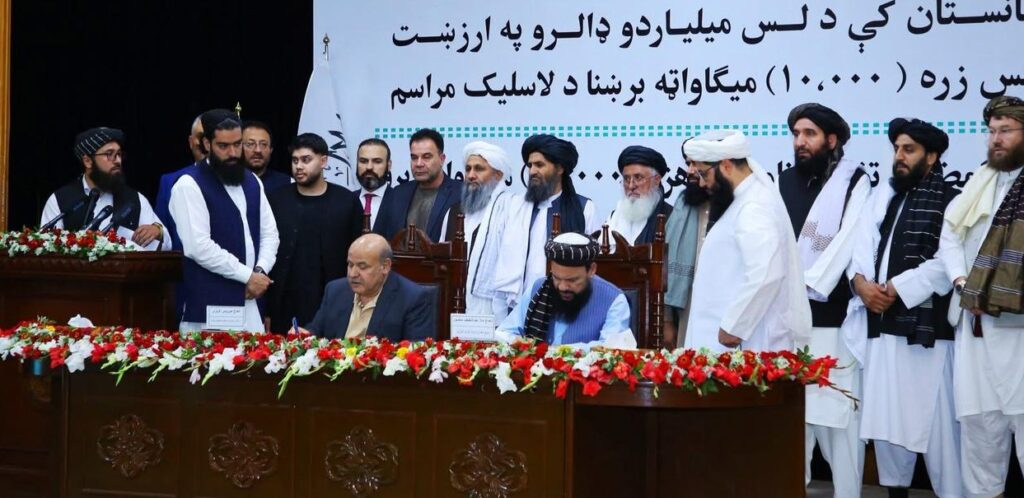
Valued at $10 billion, the project is expected to be completed by 2032. Electricity will be generated from various sources including coal, water, and wind, with 700 megawatts specifically planned to come from wind energy.
Taliban Must Release All Detained Journalists Immediately, Says Richard Bennett
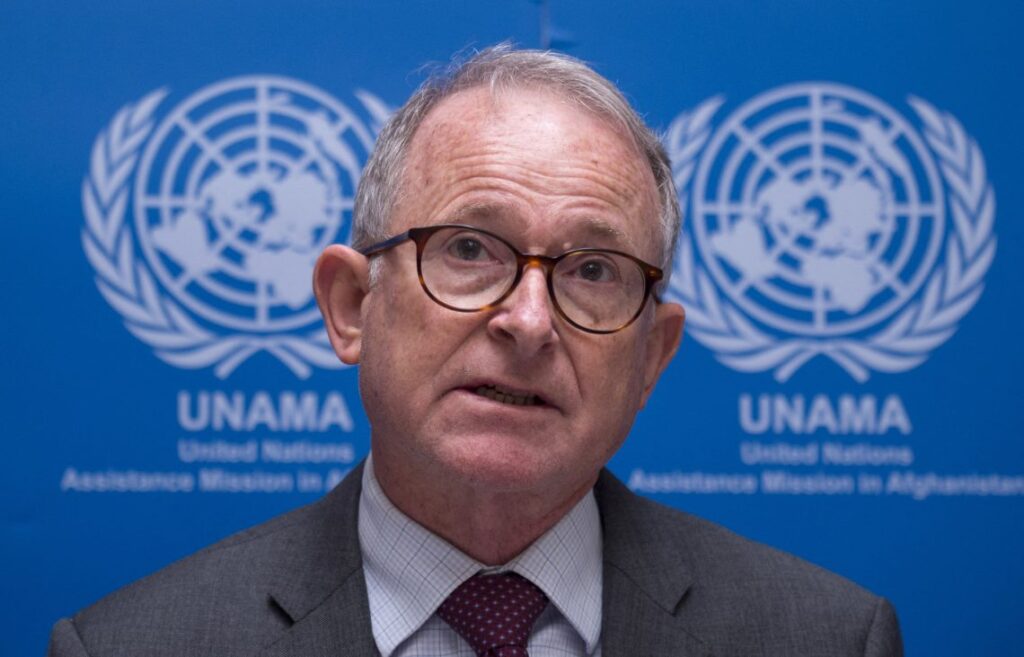
Richard Bennett, the United Nations Special Rapporteur on Human Rights in Afghanistan, has called on the Taliban to immediately release all imprisoned journalists and media workers.
His statement was issued on Saturday, 3 May, in a video message commemorating World Press Freedom Day.
Bennett underscored the vital role of free expression, stating: “Freedom of expression is essential for the realisation of all human rights.” He warned that since the Taliban’s return to power, Afghan journalists and media professionals have faced increasing repression, including arbitrary arrests, censorship, harassment, and violence.
“Journalists and media workers face strict censorship. In many cases, they are not even permitted to publish images of living beings. These restrictions are enforced through threats, arbitrary detention, and acts of violence,” he said.
The Afghan Journalists Centre reported a 58 percent increase in violations of press freedom in the past year. Since May 2024, the organisation has documented 215 incidents involving infringements on media freedom, including 175 cases of direct and indirect threats, and 40 instances of journalist detentions.
In his message, Bennett called on the Taliban to release all individuals detained for exercising their fundamental rights, including journalists, media workers, filmmakers, and civil society actors.
He also raised concerns about the particularly severe restrictions faced by women journalists, stating that they are disproportionately targeted solely on the basis of their gender.
Bennett emphasised the need for the Taliban to end censorship and repression against minorities, and to allow journalists, academics, and political activists to operate freely without fear of persecution.
He described Afghan journalists as “guardians of the truth” and urged the international community to extend greater support to Afghan media professionals, including those in exile.
“Without press freedom, there is no truth; without truth, there is no justice; and without justice, no peace,” he stated.
Despite repeated claims by the Taliban that they support media freedom, international organisations, including Amnesty International, have consistently raised alarm over deteriorating conditions for the press in Afghanistan.
Recently, the Taliban enacted a law on the “promotion of virtue,” which bans the publication of images depicting living beings and has led to the suspension of both state-run and private television broadcasts in several provinces. The group has also annulled the Media Law and the Law on Access to Information, further tightening censorship and limiting journalistic freedoms across the country.
The hollow state: how Islamic Republic endures by normalizing collapse
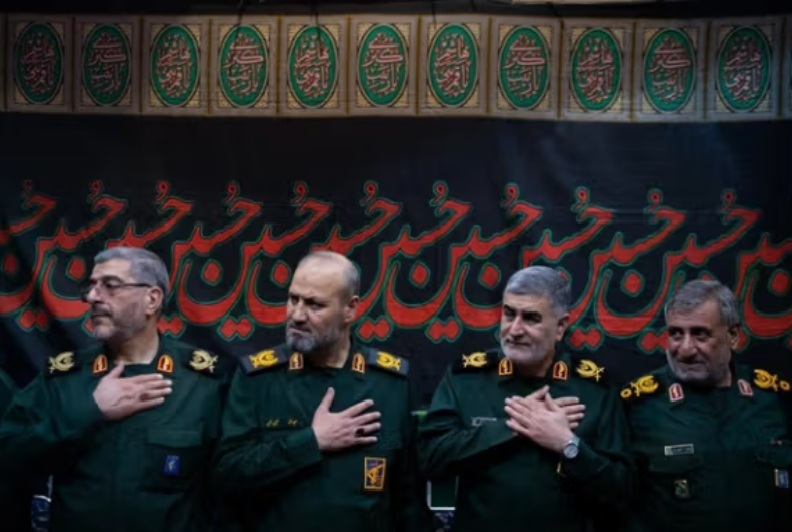
A12-day war with Israel has ushered Iran into a new phase where crisis is no longer episodic but structural—an unstable order held together by instability itself.
EU-US tariff deal not finished yet, say Europeans unhappy with Trump’s terms

It was all handshakes and smiles when European Commission chief Ursula von der Leyen and US President Donald Trump announced that a EU-US trade agreement had been reached after months of wrangling – beating Trump’s deadline of 1 August to make a deal.
The Taliban’s Crisis of Legitimacy: Ashraf Ghani Remains Afghanistan’s Legal President Until Formal Transfer of Power
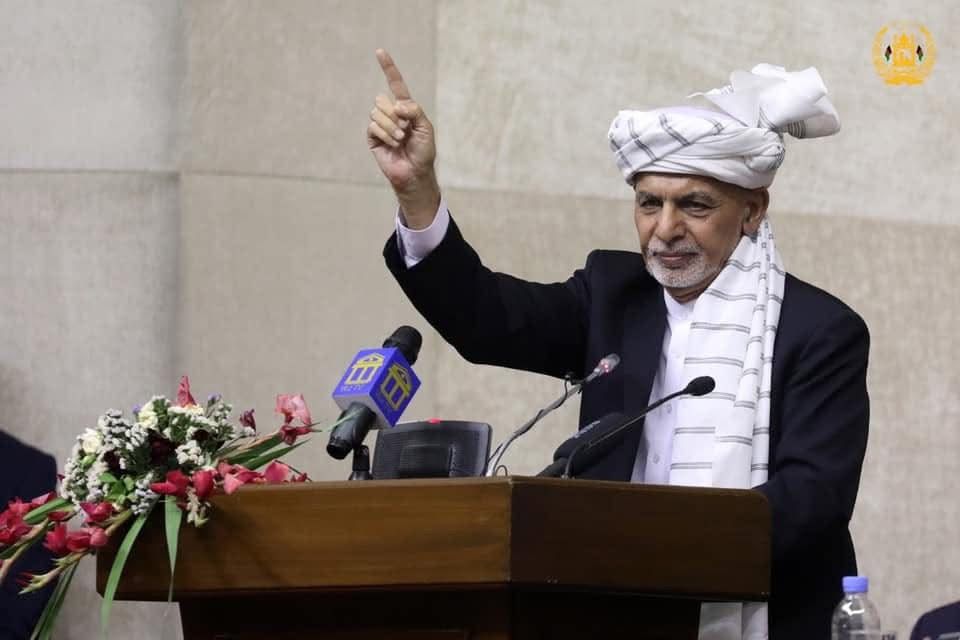
Four years after the fall of Kabul, one fundamental question still haunts both Afghans and the international community: Do the Taliban possess political legitimacy to govern Afghanistan? From a legal, constitutional, and national standpoint, the answer remains unequivocally: No.
UNAMA: Arrest of Women over Taliban’s Mandatory Dress Code Reflects Alarming Trend of Fear, Repression, and Systematic Exclusion of Afghan Women
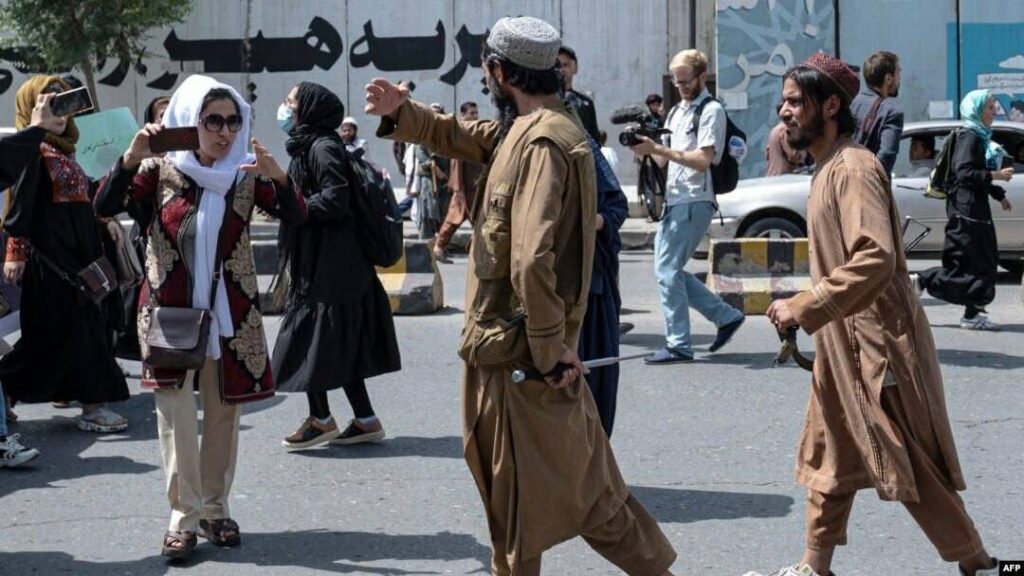
The United Nations Assistance Mission in Afghanistan (UNAMA) has expressed grave concern over the recent arrest of dozens of women and girls in Kabul by the Taliban’s morality police for allegedly violating the group’s strict dress code. UNAMA warned that such actions contribute to the growing isolation of women and girls, erode public trust, and intensify a climate of fear across the country.
President Pezeshkian’s Visit to Kabul: Iran and the Taliban Do Not Speak the Same Language
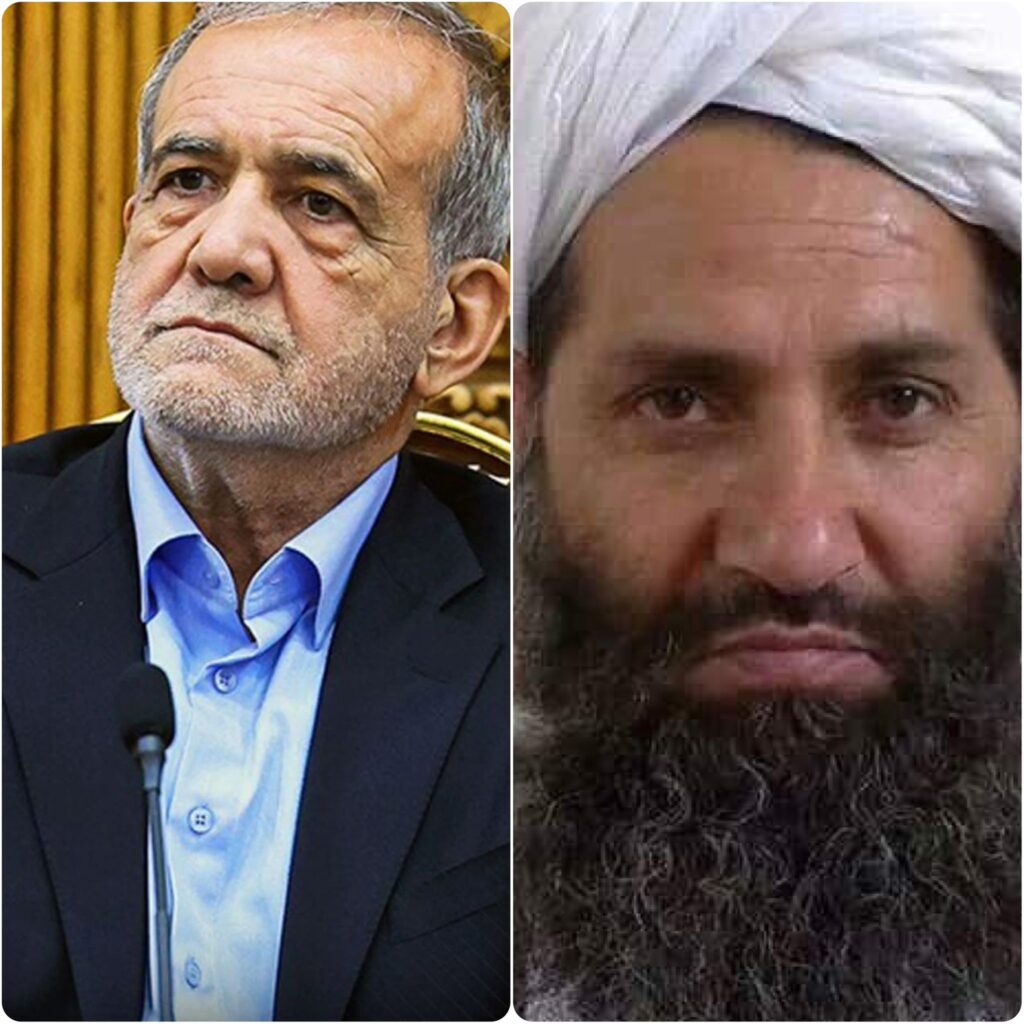
Iran’s newly elected President, Masoud Pezeshkian, has announced his willingness to make an official visit to Afghanistan. This comes at a time when the relationship between the Islamic Republic and the Taliban appears to be moving toward normalization.
Taliban and Iran Discuss Afghan Deportations and Gaza Crisis in Phone Call
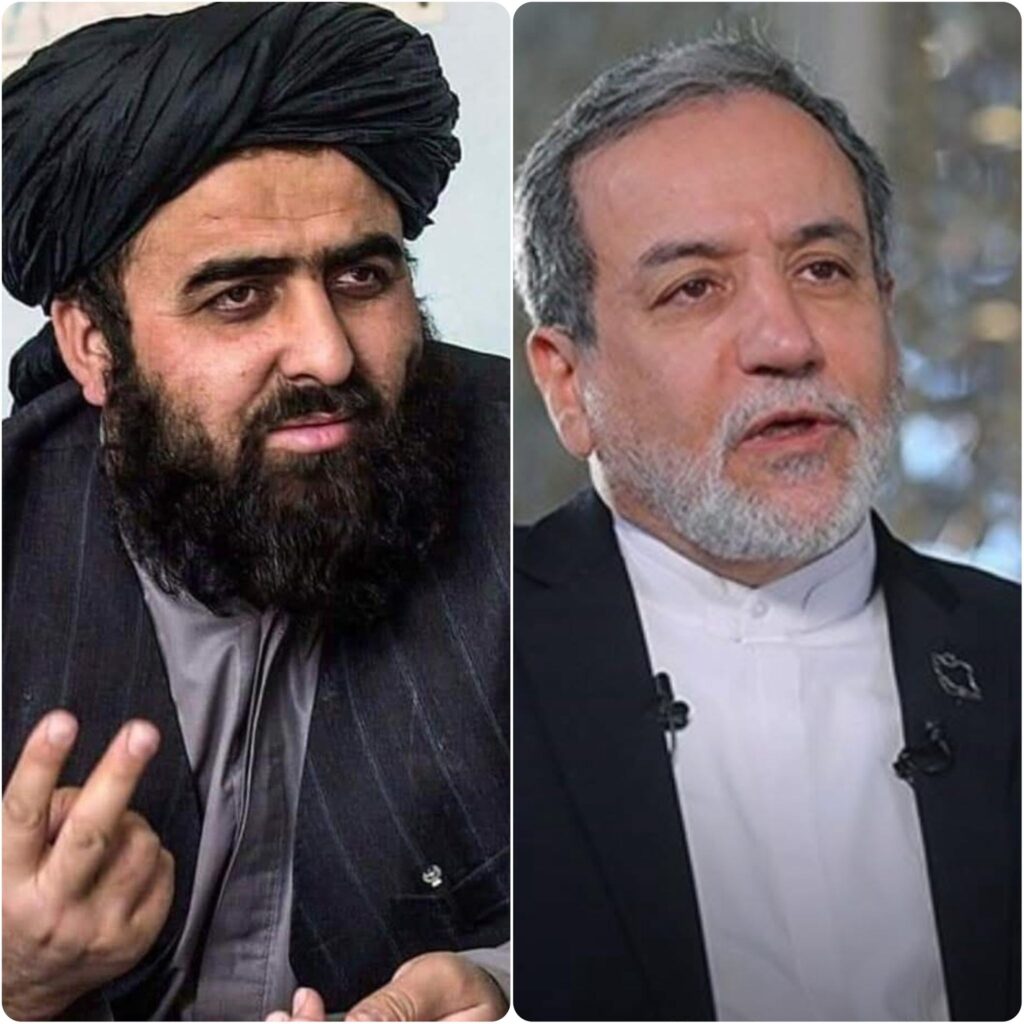
Taliban’s acting Foreign Minister, Amir Khan Muttaqi, in a phone conversation with Iran’s Foreign Minister, Abbas Araghchi, expressed concern over the rapid deportation of Afghan migrants from Iran, urging for a gradual and humane process. The two officials also discussed the humanitarian crisis in Gaza and emphasized the responsibility of Islamic countries in addressing the ongoing situation.
Forced Return of Millions of Afghans: UN Reports Torture, Arbitrary Arrests, and High Risk for Women Returnees
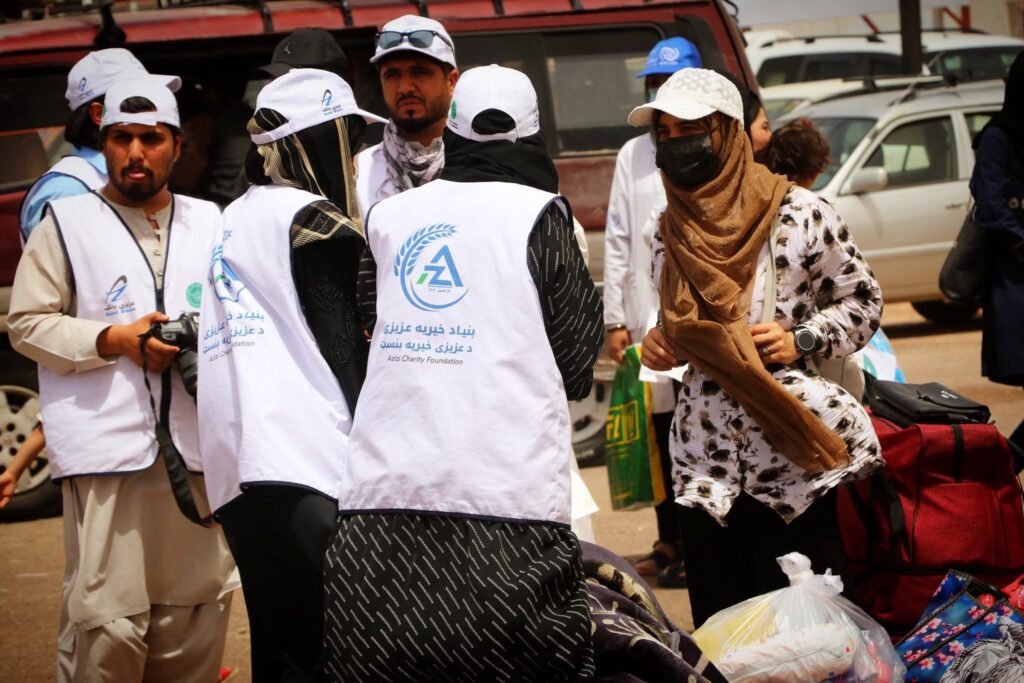
July 24, 2025 – Arg News: The United Nations has warned that up to three million Afghan migrants could be forcibly returned from Iran and Pakistan by the end of this year, while Afghanistan remains gripped by a severe humanitarian crisis.


